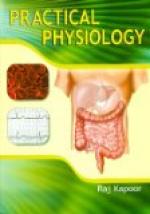The young man addicted to the use of tobacco is often through its use retarded in his career by mental languor or weakening will power, and by mental incapacity. The keenness of mental perception is dulled, and the ability to seize and hold an abstract thought is impaired. True, these effects are not sharply obvious, as it would be impossible to contrast the present condition of any one person with what it might have been. But the comparison of large numbers conveys an instructive lesson. Scholars who start well and give promise of a good future fail by the way. The honors of the great schools, academies, and colleges are very largely taken by the tobacco abstainers. This is proved by the result of repeated and extensive comparisons of the advanced classes in a great number of institutions in this country and in Europe. So true is this that any young man who aspires to a noble career should bid farewell either to his honorable ambition or to his tobacco, for the two very rarely travel together. Consequently our military and naval academies and very many seminaries and colleges prohibit the use of tobacco by their students. For the same reasons the laws of many states very properly forbid the sale to boys of tobacco, and especially of cigarettes.
307. Effect of Tobacco upon Character. Nor does tobacco spare the morals. The tobacco-user is apt to manifest a selfish disregard of the courtesies due to others. He brings to the presence of others a repulsive breath, and clothing tainted with offensive odors. He poisons the atmosphere that others must inhale, and disputes their rights to breathe a pure, untainted air. The free use of tobacco by young people dulls the acuteness of the moral senses, often leads to prevarication and deceit in the indulgence, and is apt to draw one downward to bad associates. It is not the speed but the direction that tells on the future character and destiny of young men.
Additional Experiments.
Experiment 132. To illustrate the cooperation of certain parts of the body. Tickle the inside of the nose with a feather. This does not interfere with the muscles of breathing, but they come to the help of the irritated part, and provoke sneezing to clear and protect the nose.
Experiment 133. Pretend to aim a
blow at a person’s eye. Even if he
is warned beforehand, the lids will close
in spite of his effort to
prevent them.
Experiment 134. To illustrate how sensations are referred to the ends of the nerves. Strike the elbow end of the ulna against anything hard (commonly called “hitting the crazy bone”) where the ulna nerve is exposed, and the little finger and the ring finger will tingle and become numb.
Experiment 135. To show that every nerve is independent of any other. Press two fingers closely together. Let the point of the finest needle be carried ever so lightly across




